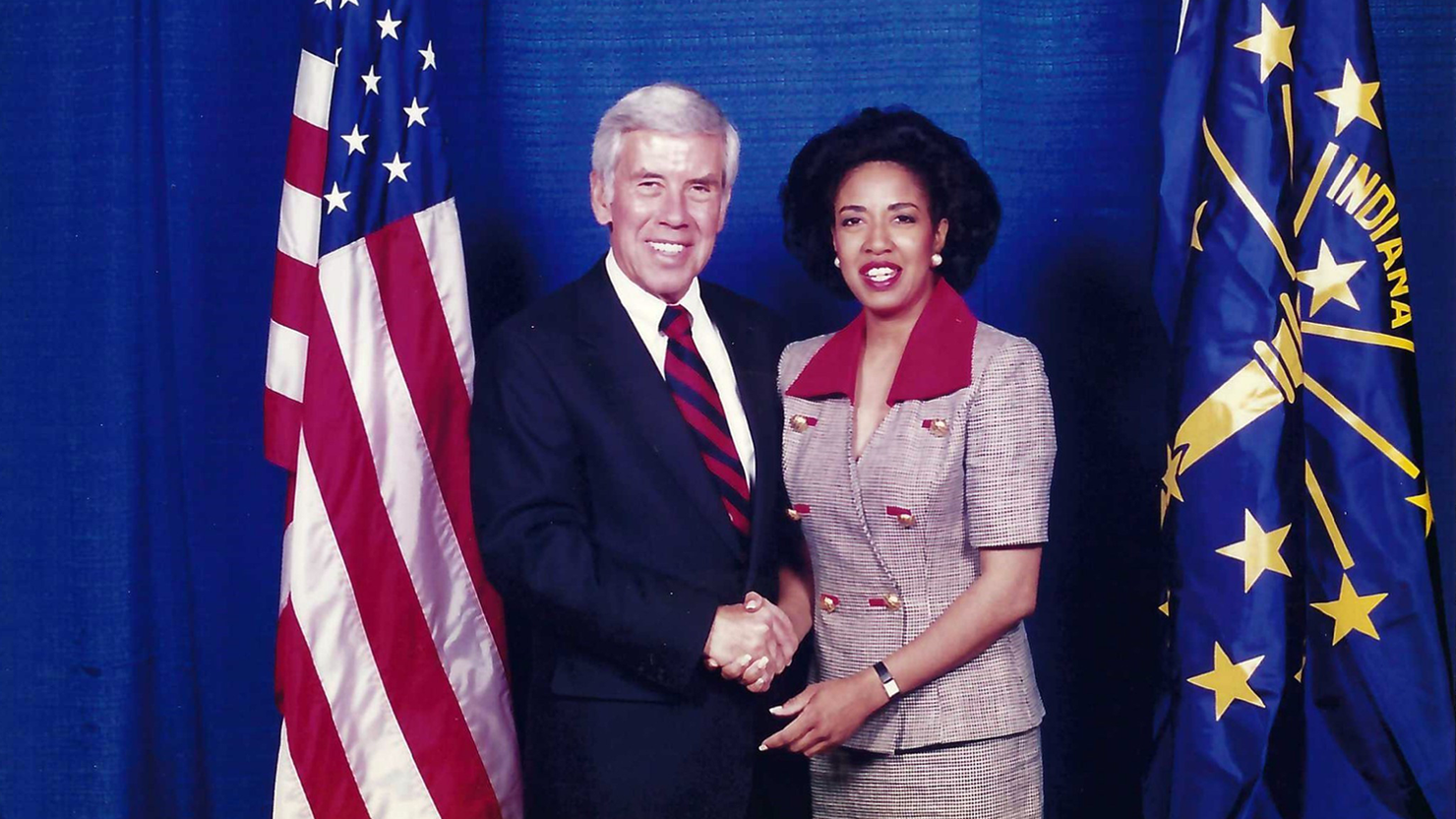In RFF's Supporter Spotlight, we hear directly from donors about their commitment to issues in climate, energy, and the environment; how they make a difference; and why they support Resources for the Future—all in their own words.
Resources magazine recently spoke with Vicky Bailey, a former commissioner with the Federal Energy Regulatory Commission (FERC), assistant secretary at the Department of Energy, and corporate executive in the energy sector. She’s currently a Resources for the Future (RFF) board member, having been a friend and supporter of RFF for more than twenty years after meeting then–RFF President Paul Portney at an energy forum. Below are excerpts from the conversation, which touched on the importance of fact-based information, Bailey’s childhood influences, and more.
Resources magazine: Why are you interested in improving environmental policy and decisionmaking, and how are your efforts currently focused toward that end?
Growing up in Indiana, I was involved in 4-H—where you get to hang around animals and learn about agriculture—and in Girl Scouts. I had the opportunity to experience the outdoors and learned to respect and appreciate the environment. In addition, my experience as a regulator and policymaker has impressed upon me the role of public opinion and perception in decisionmaking. It’s important that people understand the “Why should I care?” They need to understand why they should be involved and make sure that they have access to facts. It’s not easy, but RFF has a role to play in that.

Vicky Bailey with her mentor and friend, Richard Lugar (R-IN), who represented Indiana as a senator for 36 years
From your perspective, why should people care about environmental and natural resource issues?
From the crops we grow to the air we breathe, all of it is interrelated. One of my mentors and dear friends, the late Senator Richard Lugar, was a farmer. He would talk about how crops are affected by the environment, and he recognized that being good stewards of our environment is important. We have a lot of natural resources, and we have ways to use them responsibly and not ignore our impacts on the environment. Each of us has a part in being good stewards of our environment.
What continues to keep you engaged throughout your many years of involvement with RFF?
I think the policy engagement and economic research that RFF does so well are important now and will be in the future. I’ve had the opportunity to see the building blocks of decisionmaking and recognize that the path to decisionmaking is not certain: that’s when RFF’s critical thinking and analysis is even more helpful. I see RFF informing the process by which environmental decisionmaking gets done and providing the tools for sound policy. That’s what keeps me engaged and intellectually stimulated at RFF.
Given your experience in many different professional roles, how do you see the value of the independent research and analysis that RFF provides?
In my different roles, we’ve talked about the three e’s—energy, environment, and economy—and the nexus and balance among them. I see the value of RFF’s independent research in encouraging balanced decisionmaking. It’s important that decisionmakers have access to information that is fact based and independent, done by highly capable and committed individuals. That has been important to me through the years—as a FERC commissioner, assistant secretary, and corporate executive.
Finally, what makes RFF special? What do you think sets RFF apart from other organizations?
You’re no stronger than the people that work in your organization, and I think the level of intellectual rigor at RFF is incredible. I have a great deal of respect for that. RFF also has a strong adherence to independence. We recognize that we can’t afford to let that independence erode. That’s the only way we can get in front of a congressional committee or a company and say, “This is what the facts tell us, and what our research and analysis tell us.” RFF holds on to that strongly, and I think people value it.

Four Ways You Can Support RFF
- Give through our website: Visit www.rff.org/donate to make a one-time donation, or to set up a monthly recurring donation.
- Give through the mail: Send your check to Resources for the Future | 1616 P Street NW, Suite 600 | Washington, DC 2003
- Give through a donor-advised fund: Donate through a DAF account at a community foundation or financial institution to support RFF while receiving favorable tax benefits.
- Give through a will, trust, or gift plan: Include RFF in your estate plans to provide meaningful, long-lasting support.
Discover other ways to give at www.rff.org/donate/ways-giving or contact Tommy Wrenn at [email protected]






